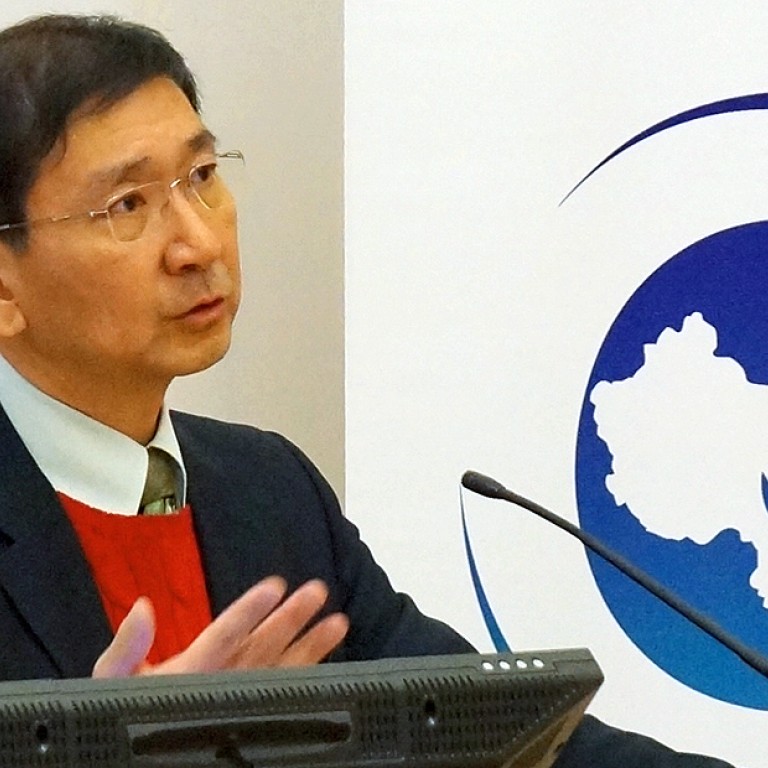
Exclusive | Ex-HKU law dean Johannes Chan calls for review of government’s universities role
Johannes Chan says the chief executive has too much influence over education institutions that are supposed to be politically independent
The government's role in higher education should be reviewed, embattled law professor Johannes Chan Man-mun said, after concerns emerged that the chief executive or his aides may have interfered in Chan's possible appointment as a pro-vice-chancellor at the University of Hong Kong.
Chan's comments came as lawyer Lester Huang, a member of the HKU governing body, told the South China Morning Post on Friday he had resigned within the last two weeks, but that he did not do so because of any interference.
Chan, believed to be a candidate for the position, spoke as a visiting professor at Cambridge University in Britain on Thursday night.
He did so a day after Sophia Kao Ching-chi, a top adviser to Chief Executive Leung Chun-ying, admitted discussing with unidentified people whether Chan was fit for the pro-vice-chancellor position. Leung's office had denied media reports that the government interfered in the selection process.
Chan refused to comment on the alleged intervention, saying he knew little about it because he had largely been away from Hong Kong since July.
But he questioned the appropriateness of the government's sway over public universities in the city.
"The government has considerable power over governance of tertiary institutions, and it doesn't seem right," Chan said. "For example, why should the chief executive be the chancellor of all [public] universities?"
Chan said the chief executive's role as chancellor was not clear, and he questioned whether it was appropriate that some university council members were appointed by the government.
"Universities should be accountable because they are publicly funded, but there are different ways of accountability, and that is something about the system we have to think of," he said.
Pro-Beijing Wen Wei Po has, based on the results of a research assessment exercise whose comprehensiveness is disputed, criticised the former law dean Chan for "meddling in politics" and lowering the HKU law faculty's research quality.
Huang denied that his resignation from the HKU council was related to the Chan saga. "I haven't met [Kao] for many years," he said, adding that no other government officials had approached him on the matter.
Huang said he stepped down as he had too many public appointments now that he had been newly posted to an education committee.
A person close to the administration said the chief executive might appoint some government-friendly figures to replace several HKU council members whose terms would expire this year, including current council chairman Dr Leong Che-hung.
Under the law, seven out of the 24 members of the HKU council are appointed by the chief executive, who is chancellor of all eight local universities.
The chancellor sits on the HKU court, an advisory body which has the power to consider the annual accounts and to discuss motions on general university policy.
Lawmakers sitting on the court are split on Chan's suggestions. Real estate sector lawmaker Abraham Razack, who also sits on the council, said the chancellor's role as the university's figurehead was clear and the practice was accepted as a good convention locally and overseas.
But education-sector legislator Ip Kin-yuen said the chief executive could also flout tradition and appoint his own loyalists to the bodies.
Chan's strong reaction "might have put HKU council in a deep dilemma", said former HKU pro-vice-chancellor Cheng Kai-ming, who has spoken in support of Chan in the saga.
"Either way, the council will be seen as making a political move … If Johannes was indeed a candidate, the council would be seen as either appointing him as a support for the pan-democrats, or denying him an appointment because of political pressure. It would be a losing situation for the council anyway," Cheng said.



